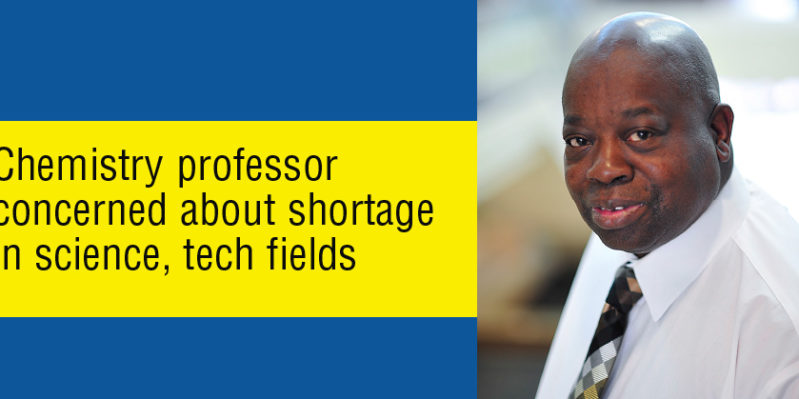
How would you summarize your professional career, including your service as an educator?
“I worked for 12 years in the chemical industry. Part of that time I worked as a quality assurance supervisor for Hercules (now Ashland), which produced plastic pellets, gunpowder, and other products. I also worked for Dow Chemical in technical services, and in industrial hygiene. I have about 26 years of service as a college chemistry professor. I worked at Lone Star College, and at Houston Community College before coming to San Jacinto College, where I have been for the past 18 years.”
There has been a push in recent years to attract students to STEM related career paths (science, technology, engineering, and math). Why is it important to the American economy to have talented and dedicated workers in these areas?
“I do not believe the USA can survive as a nation without people devoted to researching and working in STEM fields. We will become slaves to other nations that excel in these areas. I noticed a disturbing trend when I was in graduate school, that most of my fellow students who were pursuing doctorate degrees were people from other nations. There’s nothing wrong with people from foreign lands coming to America for an education, and then staying to live here. But we need our young people in STEM careers. This is our nation. There has been progress attracting more of our young people into STEM careers in recent years, especially among the Latino population. There needs to be more progress among the African-American culture.”
I understand you are doing something personally to reverse that trend.
“Yes, I serve as a mentor with the San Jacinto College Men of Honor program, which strives to increase retention, graduation, and transfer rates among African-American male students. One of the reasons I chose education as a career is because I want to make a difference with young people, to try to influence them in a positive direction. This American society glamorizes a loose lifestyle. The entertainment industry really makes it look attractive, but that is not the way things are in the real world. I am a college professor because I would rather see a young person sitting in my classroom than being handcuffed and put into a police car.”
What is your personal teaching philosophy? How do you make the challenging subject of chemistry interesting to students?
“I have a broad experience in the chemical industry, so I can teach from experience, not just theory. I always try to provide real-world examples and hands-on demonstrations in teaching. For instance, when I say we are going to study surface tension, it sounds boring. But because I have worked in the field and have experience producing detergents, I have first-hand knowledge of the importance of surface tension. Detergents must lower surface tension in order to be effective. When students get to perform demonstrations and find out how surface tension works, then it becomes relevant and interesting. I always closely link textbook learning and lectures with actual lab demonstrations so that students learn through hands-on involvement, not just observation.”
Rob Vanya
Jenkins holds a bachelor’s degree in chemistry from Lamar University, and a master’s degree in chemistry from the University of Houston. He grew up in Silsbee, and lives in the Gulfgate area of Houston with Carmella, his wife of 20 years. He has three adult daughters.

